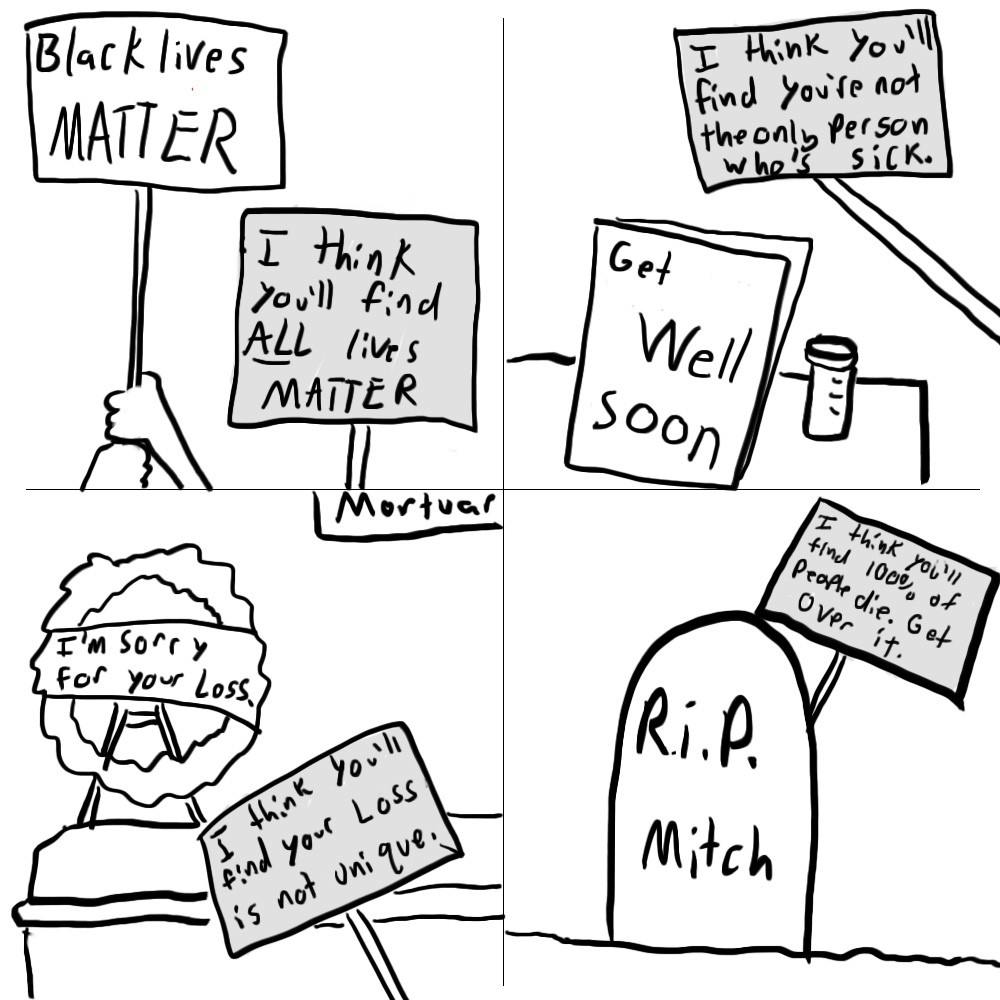The murders of Alton Sterling and Philando Castile at the hands of on-duty police officers last week catapulted the conversation on the Black Lives Matter movement into the national spotlight, yet again.
And, of course, disgruntled white people responded with their own catch phrases, such as “all lives matter” and “blue lives matter,” which displayed, yet again, an ignorant and misguided understanding of the issue.
While the majority of us at the Editorial Board are white and are, thus, not equipped to speak on behalf of the black experience in America, we have decided not to let our privilege be our silence.
We won’t speak from a perspective of oppression, which we have not faced, but we will speak with understanding, compassion and allegiance for black Americans.
Black Lives Matter is not a claim of superiority. Activists of this cause are not black supremacists. Black Lives Matter is a plea for equality.
And, yes, every life matters. That’s the whole point. The problem is if every life matters, then black lives shouldn’t be extinguished at an alarmingly high and disproportionate rate by our nation’s police force.
In response, African-Americans have started a movement in an attempt to force the nation to address the problem.
It’s time we listen to their voices. It’s time we listen to the facts.
The Washington Times reports that between 2013 and 2015, 49 percent of those killed by police were white, 30 percent were black and 19 were Hispanic.
The Census Bureau reports that the racial makeup of the United States is 67 percent white, 13 percent black and 18 percent Hispanic.
If police killings were random and not determined by the victim’s race, the statistics on police homicide would more closely reflect the demographic of the entire population.
Instead, the proportion of police homicides for African-Americans is 130 percent higher than their census proportion, but it’s 27 percent lower for whites.
What’s most fascinating about this data is that the makeup of Hispanics in both police homicides and in the general population is almost equal, as you would statistically expect in a non-prejudicial world. So, police evidently aren’t disproportionately targeting all minorities.
Police are literally killing black bodies at a disproportionate rate.
Make no mistake — shootings like the one in Dallas are not the solution to this problem. We are deeply saddened by this loss of life and strongly condemn the targeting and murdering of our police officers.
While violence against police is a tragedy, it isn’t representative of a systemically prejudicial problem, like institutional racism against blacks. But rest assured, love and respect for police officers and the BLM movement are not mutually exclusive. In fact, they should never be.
But when some people parade around refuting this movement with classless comments like “all lives matter,” what they are really saying is they don’t want to talk about the problem.
Which is especially rich, considering even Newt Gingrich acknowledged in a Facebook Live event, “It is more dangerous to be black in America” because black people are “substantially more likely to be in a situation where police don’t respect you and where you could easily get killed.”
Saying “all lives matter” just sweeps the problem of systemic police executions against blacks under the rug.
Suppressing the problem in that way not only continues the devastating effects of systemic and institutional racism but also perpetuates deep racial tensions.
If your response is anything other than asking what you can do to be a part of the solution to this senseless and prejudicial violence, you need to reevaluate yourself.
It’s the time the entire nation reevaluated.




